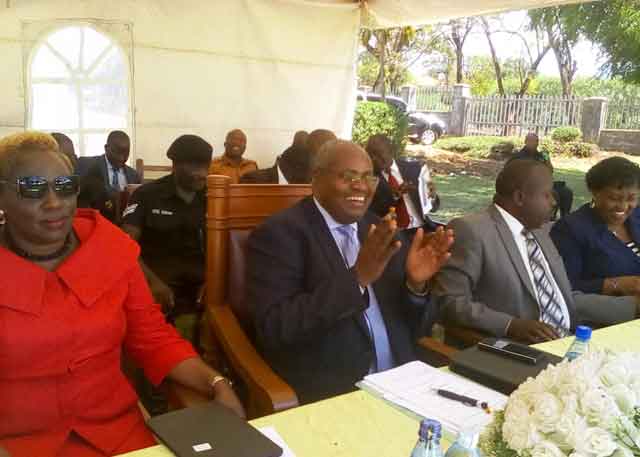
Kampala, Uganda | THE INDEPENDENT | Ugandan judge Suzan Okalany is optimistic that she performed extremely well despite technical glitches that disrupted the public hearing in the search for the International Criminal Court (ICC) Prosecutor.
Okalany is competing for the job with three others; Morris A. Anyah from Nigeria, Fergal Gaynor from Ireland, and Richard Roy from Canada, for what is arguably the most important job in the international criminal justice system. They are seeking to replace Gambian national Fatou Bensouda, whose tour of duty ends in June 2021.
According to the Rome Statute, which established the ICC, the prosecutor is elected every nine years, through a secret ballot by the Assembly of States Parties. However, this time around the Assembly of State Parties created the Committee on the Election of the Prosecutor to review applications and compile a shortlist, from which the next prosecutor will be chosen.
On Wednesday and Thursday, the four people on the shortlist gave opening and closing statements and answered questions publicly about their approaches to management, their prosecutorial philosophies and thoughts on the political nature of the role. The hearings were held virtually due to the ongoing COVID-19 restrictions.
But the ICC feed repeatedly lost both its video and audio connection during the two days of the hearings. And when the feed was stable, Justice Okalany’s connection would be interrupted repeatedly, disconnecting her from the rest of the virtual panel.
“This is a circus now,” Okalany, said in what seemed like a point of frustration after her connection was repeatedly cut and kept requesting the interviewer Jens-Otto Horslund to repeat the questions. But despite the glitches, Okalany feels confident that she did her best for the job.
“The answers I gave were the same answers I would have given even before the internet interruption. I am getting feedback to the extent that my answers were great,” Okalany told Uganda Radio Network in an interview.
Okalany said that poor internet connections are a challenge for Africa, where internet service providers sell ‘hot air’. For instance, Okalany said, that although the ICC interview requirement was that they have a standard of 10 megabits per second (Mbps), she secured more than 25 Mbps but was still interrupted.
Internet service providers said that there was an internet break. “They say the internet just went off at some time, and so, they had no control over what had happened,” Okalany said. She added that her attempt to shift to another network was further disappointing with a total failure.
Juliet Nanfuka, a Digital Media Expert with Collaboration on International ICT Policy for East and Southern Africa (CIPESA-Uganda) says that although the issue with the internet is not a one size fits all, the quality of the internet in Uganda is generally poor.
“The quality of connections still remains an issue, there is generally unstable internet. The assurance of what you will get compared to what you have paid for still has some concerns. That is increasingly coming to the fore at this time when many businesses have gone online” Nanfuka said.
The outcome of the process is expected in December when the Assembly of State Parties is expected to meet. The Office of the Prosecutor at the ICC is mandated with identifying situations to be investigated and suspects to bring to trial, and obtains the evidence to be used against them.
According to the job advert, to which the applicants responded, the states were not just looking at strong moral character, but someone with a proven record of independence and impartiality and commitment to upholding justice, accountability and human rights as well as impeccable personal and professional integrity. The committee said that this implied that the person should not have engaged in harassment, whether sexual or not, bullying, discriminatory behaviour or other forms of abuse of power or malfeasance.
Justice Suzan Okalany, the only African national and female on the shortlist had handled some of the most complex criminal cases in Uganda, including the trial of the 2010 Kampala bombing suspects in which more than 300 witnesses were interviewed and over 500 pieces of physical evidence reviewed.
In 2017 Okalany won an international accolade as Prosecutor of the Year by the International Association of Prosecutors.
********
URN
 The Independent Uganda: You get the Truth we Pay the Price
The Independent Uganda: You get the Truth we Pay the Price



